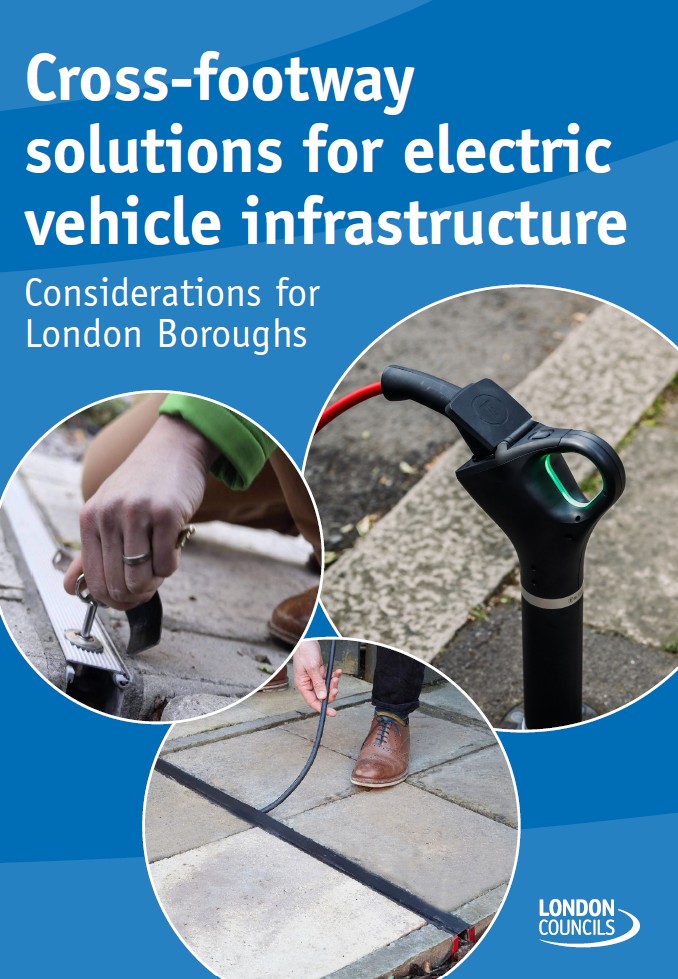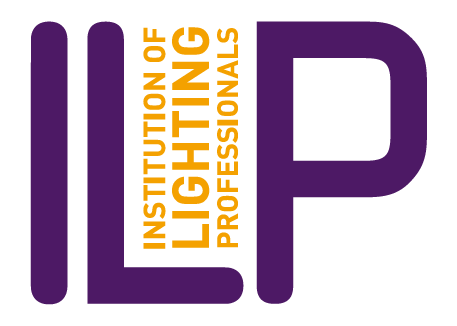The lighting industry needs to get together with government to develop national technical standards and guidance for local authorities to better manage the rapid acceleration we’re seeing in people home-charging electric vehicles (EVs) across the pavement or footway.
This is one of the key recommendations within new guidance for London boroughs and lighting engineers that has been developed by London Councils and the LoEV Group, part of the London Lighting Engineers Group (LoLEG).
The guidance, ‘Cross-footway solutions for electric vehicle infrastructure: considerations for London Boroughs’, has been created to help local authorities grappling with the rapid expansion of home-charging of EVs by people without access to off-street parking.
The Department for Transport over the summer relaxed the need for drivers to submit planning applications to install charge points in or outside their homes and set up a £25m scheme for local authorities to expand access to cross-pavement charging technologies.
However, lighting professionals, including ILP members, are warning that such rapid expansion brings with it the potential for electrical safety and trip hazard risks. Currently, such is the speed of this transition, local authorities are grappling with something of a ‘Wild West’ in terms of residential home-charging being carried out without effective regulation, control or oversight.

The September edition of Lighting Journal will look at this issue in depth. Perry Hazell, ILP Immediate Past President as well chair of LoEV and business manager, Asset Management Services, Environment, Sustainability and Leisure, at London Borough of Southwark, will warn: “The danger is that all this takes it out of our hands, out of the hands of competent, qualified lighting professionals and engineers.”
Cross-pavement or cross-footway charging can present a potential trip hazard as well as possible electrical safety risks, especially if a device fails for any reason.
“There needs to be an onus on the homeowner to make sure that that electrical supply has not changed and that the electrical certification is up to date; that they have used an approved supplier, an approved charge-point operator, and so on,” Perry will tell Lighting Journal.
“Ultimately, their charge point will be on their house and they are running a lead out on to the highway. But we just won’t know,” he will add.
The London Councils guidance highlights that local authorities are facing, first, an absence of national technical standards: “Further guidance is needed on managing key issues such as accessibility, electrical and earthing risks, planning requirements, and the impact on streetscape and highway infrastructure,” it states.
There are also concerns about the fact there is, as yet, no national framework guiding how local authorities should permit and regulate cross-footway charging solutions. “This creates uncertainty around the safe and legal basis for installation, as well as ambiguity over licensing procedures, insurance requirements, and liability responsibilities,” the guidance argues.
Furthermore, all local authorities are facing resource constraints, meaning they are potentially hampered in having the requisite capacity, funding, and technical expertise to establish and manage the processes needed for safe cross-footway charging.
“This includes processes for approving, installing, enforcing, and maintaining these solutions. Without adequate resources and support, boroughs may struggle to ensure long-term safety, compliance, and operational viability of cross-footway charging infrastructure,” the guidance warns.
As well as the need for national technical standards and further guidance for local authorities, the guidance is calling for more funding for local authorities to enable the effective roll out of cross-footway charging.
There should also be more sharing of best practice and more monitoring and evaluating of the impact of this charging infrastructure on accessibility, safety, and public EV infrastructure.
The guidance can be downloaded at: https://www.londoncouncils.gov.uk/sites/default/files/2025-07/London%20Councils%27%20Cross-pavement%20EV%20charging%20report_0.pdf
- Look out for the September edition of Lighting Journal, which will include a special focus EV charging.
Image: Shutterstock



